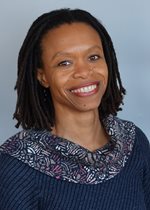Keynote Addresses
Missing & Murdered: Understanding the Role of Intergenerational Trauma in the Ongoing Crisis of Violence Faced by Indigenous Women and Girls
Connie Walker
Investigative Reporter
CBC News
Wednesday, November 4, 9:45 – 11:30am
Awards presented during this keynote:
- Frank W. Putnam Trauma Research Scholars
- Robert S. Laufer, PhD, Memorial Award for Outstanding Scientific Achievement
- Chaim and Bela Danieli Young Professional Award
- Sarah Haley Memorial Award for Clinical Excellence
- Innovation Award
- Sarah Haley Memorial Award for Clinical Excellence
- Award for Outstanding Service to ISTSS
Indigenous women and girls face some of the worst rates of violence in the United States, but their stories are often ignored in the media and their calls for justice go unanswered. 84 percent of Indigenous women have experienced physical, sexual or psychological violence in their lifetime but only 13 percent of those assaults result in an arrest. In some tribal communities, Indigenous women have rates of murder that are over 10 times the national average. What role does the media play in raising awareness about the crisis of violence these women face? How can our reporting go beyond the statistics to better understand how intergenerational trauma exacerbates violence against Indigenous women and girls? What responsibility do journalists have to avoid causing more harm while delving into the trauma faced by survivors? In her podcast, Missing & Murdered, investigative reporter Connie Walker explores unsolved cases of missing and murdered Indigenous women and girls and shines a light on the systemic issues that contribute to the rates of violence. Connie draws on her lived experience as a Cree woman and storyteller to uncover the truth about our shared history and show how colonization, genocide and institutional racism contribute to the trauma in Indigenous communities.
.JPG?width=149&height=224) Connie Walker (@connie_walker) is a host/managing editor at Gimlet Media. She previously hosted the CBC News podcast Missing & Murdered. In 2018, Missing & Murdered: Finding Cleo won the inaugural Best Serialized Story award at the Third Coast International Audio festival. The podcast was also featured in the New York Times, the Columbia Journalism Review, The Rolling Stone, Vulture, Teen Vogue and named one of the Best Podcasts of 2018 by Apple Podcasts.
Connie Walker (@connie_walker) is a host/managing editor at Gimlet Media. She previously hosted the CBC News podcast Missing & Murdered. In 2018, Missing & Murdered: Finding Cleo won the inaugural Best Serialized Story award at the Third Coast International Audio festival. The podcast was also featured in the New York Times, the Columbia Journalism Review, The Rolling Stone, Vulture, Teen Vogue and named one of the Best Podcasts of 2018 by Apple Podcasts.
Walker is Cree from the Okanese First Nation in Saskatchewan. She currently lives with her family in Brooklyn, NY.
What is Global Mental Health?
Pamela Y. Collins, MD, MPH
Professor of Psychiatry and Behavioral Sciences and Professor of Global Health
Director, UW Global Mental Health
Executive Director, International Training and Education Center for Health
University of Washington
Friday, November 6, 2pm – 3:15pm
Reflecting on the health, social and emotional effects of the COVID-19 pandemic, some communities will mourn the loss of life and livelihoods. Others will recall the rage and grief related to violent manifestations of systemic racism during this time. The appropriate responses to these many threats—social, clinical, political or some combination—are questions suited for the global mental health (GMH) community. GMH research funding of the past decade led to gains in the evidence base for task-sharing to extend human resources for mental health care and for integrating mental health into primary and specialty care platforms, as well as schools and other community settings. Clearly, more comprehensive investment in research and in sustained implementation of social, community and individual-level intervention is needed. The GMH project falters, however, without deliberate steps toward mental health equity. Equity in population mental health outcomes requires a commitment to tackling social problems that limit the effectiveness of care oriented to the individual. Equity in the production and dissemination of global mental health knowledge requires prioritization of local cultural perspectives. Equity in the application of research outcomes requires diversity in research participation. We have the chance for impactful innovation at this pivotal period in human history.
 Pamela Collins is a professor of psychiatry and behavioral sciences and professor of global health at the University of Washington, where she directs the Global Mental Health Program. She is a psychiatrist and mixed methods researcher with 25 years of experience in global public and mental health research, education, training and capacity-building, and science policy leadership. Prior to her current role she directed the Office for Research on Disparities & Global Mental Health and the Office of Rural Mental Health Research at the National Institute of Mental Health (NIMH) (USA). Dr. Collins’ research has focused on social stigma related to mental illness and its relationship to women’s health behaviors; the intersections of HIV prevention, care and treatment; and the mental health needs of diverse groups in the U.S., Latin America and Sub-Saharan Africa. She is developing new research on urban adolescent mental health in cities around the world.
Pamela Collins is a professor of psychiatry and behavioral sciences and professor of global health at the University of Washington, where she directs the Global Mental Health Program. She is a psychiatrist and mixed methods researcher with 25 years of experience in global public and mental health research, education, training and capacity-building, and science policy leadership. Prior to her current role she directed the Office for Research on Disparities & Global Mental Health and the Office of Rural Mental Health Research at the National Institute of Mental Health (NIMH) (USA). Dr. Collins’ research has focused on social stigma related to mental illness and its relationship to women’s health behaviors; the intersections of HIV prevention, care and treatment; and the mental health needs of diverse groups in the U.S., Latin America and Sub-Saharan Africa. She is developing new research on urban adolescent mental health in cities around the world.
Transdiagnostic Approaches to Mental Health in the Aftermath of Trauma
Tim Dalgleish, PhD
Programme Leader Scientist, Medical Research Council Cognition and Brain Sciences Unit
Director, Cambridge Centre for Affective Disorders
University of Cambridge
Tuesday, November 10, 10am – 11:15am
Q&A: Wednesday, November 11, 12:15pm – 12:45pm
Despite a longstanding and widespread influence of the diagnostic approach to mental health in the aftermath of trauma, exemplified by the prototypical diagnosis of PTSD, there is an emerging and growing consensus that psychiatric nosologies may no longer be entirely fit for purpose in research and clinical practice. In their place, there is gathering support for a ‘transdiagnostic’ approach that cuts across traditional diagnostic boundaries in order to provide novel insights into how we might understand mental health difficulties. Removing the distinctions between proposed psychiatric taxa at the level of classification opens up new ways of classifying mental health problems; suggests alternative conceptualizations of the processes implicated in mental health; and provides a platform for novel ways of thinking about onset, maintenance, clinical treatment and recovery from experiences of disabling mental distress in the aftermath of traumatic events. In this talk, Tim Dalgleish will begin with a brief history of the diagnostic approach and outline several challenges it currently faces that arguably limit its applicability in current mental health science and practice in the context of traumatic distress. He will then review several recent transdiagnostic approaches to classification, biopsychosocial processes and clinical interventions, highlighting promising novel developments and presenting data from a recent treatment trial of a modular transdiagnostic approach. Finally, he will present some key challenges facing transdiagnostic science in understanding response to trauma and make suggestions for a way forward.
 Professor Tim Dalgleish is a clinical psychologist. He works both as a research scientist at the University of Cambridge and as a practitioner. He is the director of the Cambridge Centre for Affective Disorders. His research focuses on understanding and developing psychological treatments for common mental health problems such as depression, anxiety and posttraumatic stress. He adopts a translational approach, seeking to utilize insights from basic cognitive neuroscience to enhance clinical interventions for these conditions. His work employs a range of scientific methods from brain imaging to the use of large scale clinical trials.
Professor Tim Dalgleish is a clinical psychologist. He works both as a research scientist at the University of Cambridge and as a practitioner. He is the director of the Cambridge Centre for Affective Disorders. His research focuses on understanding and developing psychological treatments for common mental health problems such as depression, anxiety and posttraumatic stress. He adopts a translational approach, seeking to utilize insights from basic cognitive neuroscience to enhance clinical interventions for these conditions. His work employs a range of scientific methods from brain imaging to the use of large scale clinical trials.
Traumatic Stress Science in the 21st Century: Lost in Translation?
Benjamin E. Saunders, PhD
Professor Emeritus, Department of Psychiatry and Behavioral Sciences
Former Associate Director, National Crime Victims Research and Treatment Center
Former Associate Director, National Mass Violence Victimization Resource Center
Medical University of South Carolina
Wednesday, November 11, 5pm – 6:15pm
The Lifetime Achievement Award will be presented during this keynote.
Q&A: Friday, November 13, 1pm – 1:30pm
In two generations, modern traumatic stress science has moved from practically nonexistent to a mature, mainstream area of study. Early groundbreaking studies examined basic questions such as the prevalence and impact of trauma. Research changed our view of traumatic stress from being rare and combat-related to understanding that it is a common part of life for many if not most people. Studies of new, trauma-focused treatments and programs established a strong basis for evidence-based interventions. Billions of dollars have been spent on trauma research and much has been learned. Few would disagree that this body of knowledge has affected clinical practice, prevention and support programs, and public policy worldwide. The scope and intensity of this impact is difficult to measure, but likely is less than desirable. Today, science is under attack by many forces. Political, social movement, religious, and other leaders openly reject consensus scientific findings at odds with their beliefs and goals. Trust in science by the public, always somewhat tenuous, is lower. How can the traumatic stress field respond to these challenges, do effective science, translate its findings to skeptical consumers, and be more influential? Specific steps the field can take to help its science have a greater impact on practice, policy, and public understanding will be discussed.
 After receiving his PhD in clinical social work from Florida State University, Dr. Saunders joined the faculty of the Department of Psychiatry and Behavioral Sciences at the Medical University of South Carolina in Charleston, South Carolina, where he served for 36 years. In 2019, he retired from the full-time faculty and assumed the rank of Professor Emeritus. At the time of his retirement, Dr. Saunders was Professor, Associate Director of the National Crime Victims Research and Treatment Center, Associate Director of the National Mass Violence Victimization Resource Center, and a Licensed Independent Social Worker-Clinical Practice. His research, training, and clinical interests include the initial and long-term impact of violence and abuse on children and adolescents; the epidemiology of psychological trauma, violence, and abuse; treatment approaches for victimized and traumatized children and their families; the use of technology in mental health training and service delivery; and innovative methods for training, implementing, and delivering evidence supported interventions in community service agencies. His work has been funded by government and private agencies such as the National Institute of Mental Health, the National Institute on Drug Abuse, the National Institute on Child Health and Human Development, the National Institute of Justice, the Office for Victims of Crime, the Substance Abuse and Mental Health Services Administration, the National Center on Child Abuse and Neglect, the U.S. Department of the Navy, the Duke Endowment, and the Annie E. Casey Foundation. In 2001 Dr. Saunders received the Research Career Achievement Award from the American Professional Society on the Abuse of Children and in 2019 he was named a Fellow of the American Academy of Social Work and Social Welfare. In addition to his research and teaching activities, Dr. Saunders has provided clinical supervision to many social work and psychology interns, postdoctoral fellows, and psychiatry residents.
After receiving his PhD in clinical social work from Florida State University, Dr. Saunders joined the faculty of the Department of Psychiatry and Behavioral Sciences at the Medical University of South Carolina in Charleston, South Carolina, where he served for 36 years. In 2019, he retired from the full-time faculty and assumed the rank of Professor Emeritus. At the time of his retirement, Dr. Saunders was Professor, Associate Director of the National Crime Victims Research and Treatment Center, Associate Director of the National Mass Violence Victimization Resource Center, and a Licensed Independent Social Worker-Clinical Practice. His research, training, and clinical interests include the initial and long-term impact of violence and abuse on children and adolescents; the epidemiology of psychological trauma, violence, and abuse; treatment approaches for victimized and traumatized children and their families; the use of technology in mental health training and service delivery; and innovative methods for training, implementing, and delivering evidence supported interventions in community service agencies. His work has been funded by government and private agencies such as the National Institute of Mental Health, the National Institute on Drug Abuse, the National Institute on Child Health and Human Development, the National Institute of Justice, the Office for Victims of Crime, the Substance Abuse and Mental Health Services Administration, the National Center on Child Abuse and Neglect, the U.S. Department of the Navy, the Duke Endowment, and the Annie E. Casey Foundation. In 2001 Dr. Saunders received the Research Career Achievement Award from the American Professional Society on the Abuse of Children and in 2019 he was named a Fellow of the American Academy of Social Work and Social Welfare. In addition to his research and teaching activities, Dr. Saunders has provided clinical supervision to many social work and psychology interns, postdoctoral fellows, and psychiatry residents.